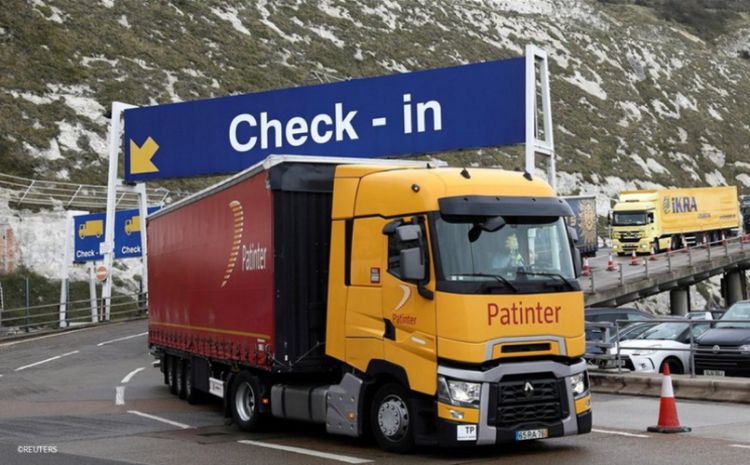Brexit: What changes in road transport and trade of goods between Europe and the UK?
On 31 December 2020, the transition period for the United Kingdom's withdrawal from the European Union (EU) ended, with significant changes in road transport and trade of goods between Europe and the UK, where the EU law no longer applies.

For customs purposes, the UK is now treated as a non-EU country with preferential arrangements concerning the trade in goods and road transport. This new scenario is due to the Trade and Cooperation Agreement concluded between the EU and the UK on 24 December 2020.
Regarding road transport, there are some significant consequences on the UK's choice to leave the EU Single Market and Customs Union, such as its inability to participate in the EU Single Market for transport services. Operators also lose the right to conduct unlimited cross-trade in the EU and can only execute three cabotage operations within a Single Member State territory.
Still, this trade deal brings some benefits for the road transport sector:
- Unlimited point-to-point access for haulers carrying between the EU and the UK, and full transit rights across each other territories;
- The right to perform up to 2 extra operations in the other party's territory (maximum one cabotage operation for UK haulers);
- Provisions on working conditions, road safety, fair competition, and horizontal level playing field clauses on the environment, social issues, and competition.
About trade in goods, with the end of the Brexit transition period, the UK no longer benefits from the free movement of assets. It is expected more border delays due to customs formalities and checks on UK goods entering the EU. VAT and excise duties will also be applied upon importation (including for online purchases). To supply both EU and UK markets, UK producers must meet both sets of standards and regulations and fulfill all applicable compliance checks by EU bodies, with no conformity assessment equivalence.
However, the deal also benefits the trade in goods between the UK and the EU:
- Zero tariffs or quotas on goods traded, ensuring lower prices for consumers (as long as the agreed rules are met). Traders can self-certify the origin of goods sold and enjoy 'full cumulation' (i.e., processing activities also count towards the origin, not just materials used), making it easier to comply with requirements and obtain zero-tariff access;
- Mutual recognition of trusted traders programs, namely "Authorized Economic Operators", ensuring lighter customs formalities and balanced flow of goods;
- Producers can cater to both markets more easily, with a common reference definition of international standards and the possibility to self-declare conformity of low-risk products;
- Particular facilitation arrangements for wine, automotive, organics, pharmaceuticals, and chemicals.
This agreement also sets out particular measures for the United Kingdom regarding law enforcement, judicial cooperation in criminal matters, and Union programs' participation. Although it does not match the level of economic integration that existed while the UK was an EU Member State, the Trade and Cooperation Agreement goes beyond traditional free trade agreements providing a firm basis for preserving the previous longstanding friendship and cooperation with the EU.
Source:
European Union
Avalara
- Brexit
- Trade and Cooperation Agreement
- EU-UK trade Deal
- Road transport
- Trade in goods
- Trade market
- European Union (EU)
- United Kigdom

